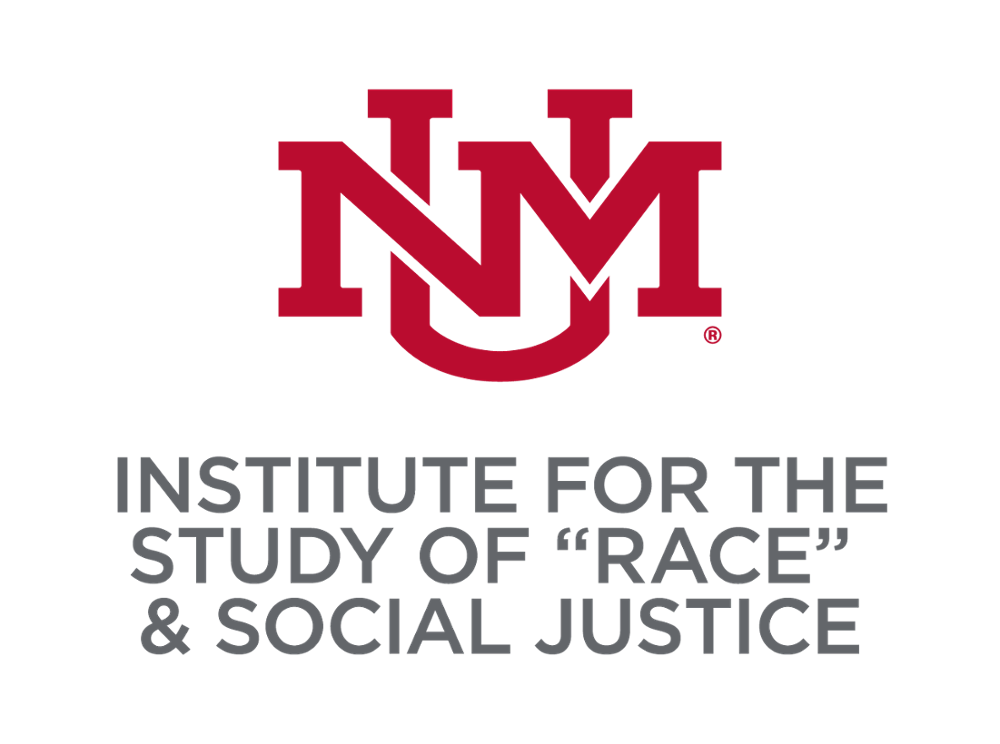Institute for the Study of "Race" and Social Justice General Meeting, Feb 24, 2023
When: Fri, Feb 24 2023 12:00pm - Fri, Feb 24 2023 1:30pm
Where: SSCO 1061 Social Sciences Bldg, UNM
Discussion topic:
Reconsidering Office of Management and Budget (OMB) Standards for Race & Ethnicity: Centering Impacted Communities
See link below for Opportunities to Submit Comments to Federal Registry by April 12, 2023 Deadline
Date: Fri. 2/24/23 @ 12 pm - 1:30 pm MST Hybrid (in-person and Zoom): SSCO 1061 Social Sciences Bldg. UNM Main Campus, Bldg. #78
Zoom Link: https://unm.zoom.us/j/92107683080
*Pizza and Salad Provided*
Bring Your Own Beverage*
AGENDA
- Introductions; Approval of the Agenda; Indigenous Territorial Acknowledgement & Labor Acknowledgment: How do we reflect and act in solidarity? Please sign in chat/clipboard.
- Free NSF Conference Series: *National Science Foundation (NSF) Hispanic-Serving Institutions (HSI) Intersectionality Series - Virtual Meeting & Community of Practice for Student Success: Thurs. March 9, 2023, 10 am - 1 pm MDT
Speakers: Dr. Michelle Espino Lira, Counseling, Higher Education & Special Education, University of Maryland-College Park, “Hispanic Serving Institutions as Cultivators of Community Cultural Wealth,” and
Leslie Luqueño, PhD Candidate, Stanford University, “Framing the Future: Exploring how Children of Latinx Immigrants Connect Past, Present, and Future during their College Decision-making Process.”
RSVP form and Zoom link for NSF virtual conference series will be circulated via Institute listserv.
See instructions for joining Institute listserv highlighted below.
Save the Date: Thurs. April 4, 2024: Dr. Ruth Zambrana, Distinguished Professor, University of Maryland-College Park.
Drop-In Virtual Office Hours/Cafecitos for cultivating community of practices for student success at Hispanic-Serving Institutions (HSI) through Intersectionality as Inquiry & Praxis, Zoom links posted below. - CONVERSATION TOPIC
The last time the federal standards on race and ethnicity were revised was over two decades ago. If we depart from the premise that the purpose of race and ethnicity, and other policy-relevant data collection is not simply about complying with bureaucratic mandates, but rather it is about establishing communities of practice that work in concert toward the creation of pathways (from harmonized and contextualized data collection, analysis and reporting) to effective policy solutions and interventions that address the pressing needs of impacted communities across the country, how can we think outside the box? How should we measure race, ethnicity for generations to come?
Bring your ideas, questions and comments to share as we create greater understanding of what’s at stake and the opportunity to have your voice heard by the last day to submit comments to the federal registry, 4/12/23, info pasted below. Initial proposals of the federal working group include:- Collect race and ethnicity using one combined question
- Add “Middle Eastern or NorthAfrican” (MENA) as a new minimum category
- Require the collection of detailed race and ethnicity by default
Other changes include removing the term: ”Who maintain tribal affiliation orcommunity attachment” in the American Indian or Alaska Native definition
Feedback is requested on how to collect data on enslaved people originally from the African continent (e.g., American Descendants of slavery or American freedmen” or something else? More information and to submit comments by 4/12/23 deadline visit: https://www.federalregister.gov/documents/2023/01/27/2023-01635/initial-proposals-for-updating-ombs-race-and-ethnicity-statistical-standards
Invited Speakers
(3-5 minutes of opening remarks):
- Professor Irene Vasquez, Inaugural Chair & Professor, Chicana and Chicano Studies
- Professor Kathy Powers, Associate Chair, Africana Studies & Associate Professor, Political Science
- Professor John LaVelle, Law School, UNM
JOIN OUR LISTSERVE TO RECEIVE UPDATES ABOUT EVENTS & OPPORTUNITIES
For more information and to support the Institute join the RACE_SOCIAL_JUSTICE listserv by visiting: race.unm.edu, page down and click "Join Listserv Now." For information on upcoming events visit race.unm.edu and click “events.”
SPRING 2023 DROP-IN INTERSECTIONALITY VIRTUAL OFFICE HOURS/CAFECITOS FOR CULTIVATING COMMUNITIES OF PRACTICE FOR STUDENT SUCCESS PART OF HISPANIC-SERVING INSTITUTIONS (HSI) INTERSECTIONALITY CONFERENCE SERIES FUNDED BY NATIONAL SCIENCE FOUNDATION (NSF)*
- 3/10: 9-11 am MDT: https://unm.zoom.us/j/95228553305
- 4/7: 9-11 am MDT: https://unm.zoom.us/j/95470937004
- 5/5: 9-11 am MDT: https://unm.zoom.us/j/96198416910
*NOTE: The opinions, findings, and conclusions or recommendations expressed are those of the authors(s) and do not necessarily reflect the views of the National Science Foundation. Award number: 2235467.
INSTITUTE FOR THE STUDY OF “RACE” & SOCIAL JUSTICEUNIVERSITY OF NEW MEXICO, Website: race.unm.edu, email: race@unm.edu established January 2009; Mission: promote the establishment of empirical, theoretical and methodological clarity about "race" that draws on cutting-edge thinking from multiple disciplines and diverse empirical traditions promote clarity about race, racialization that builds on the insights of multiple disciplines; develop strategies for ameliorating race-based inequality
NEW MEXICO STATEWIDE RACE, GENDER, CLASS DATA POLICY CONSORTIUMestablished July 2014, first in the country.
Mission
Intersectional justice through harmonizing data, analysis, policy making and praxis for better serving diverse communities through intersectional knowledge projects anchored in the importance of examining the simultaneity race, gender, class and other intersecting social locations within systems of difference, power, inequality and resistance for equity-based policy making and practice
VALUES
- Indigenous Sovereignty
- Inclusive Leadership: Diversity is our strength
- Interdisciplinary, Transdisciplinary Research
- Multiple Epistemologies & Methodological Approaches
- Transparency and Self-Reflexivity
- Ethical Equity-Based Accountability
- Community Collaboration, Education & Outreach
- Attention to Power Dynamics & Commitment to Power Sharing
- Justice & Social Responsibility
- Do No Harm
Link: Office of Management and Budget (OMB) Standards for Race & Ethnicity

